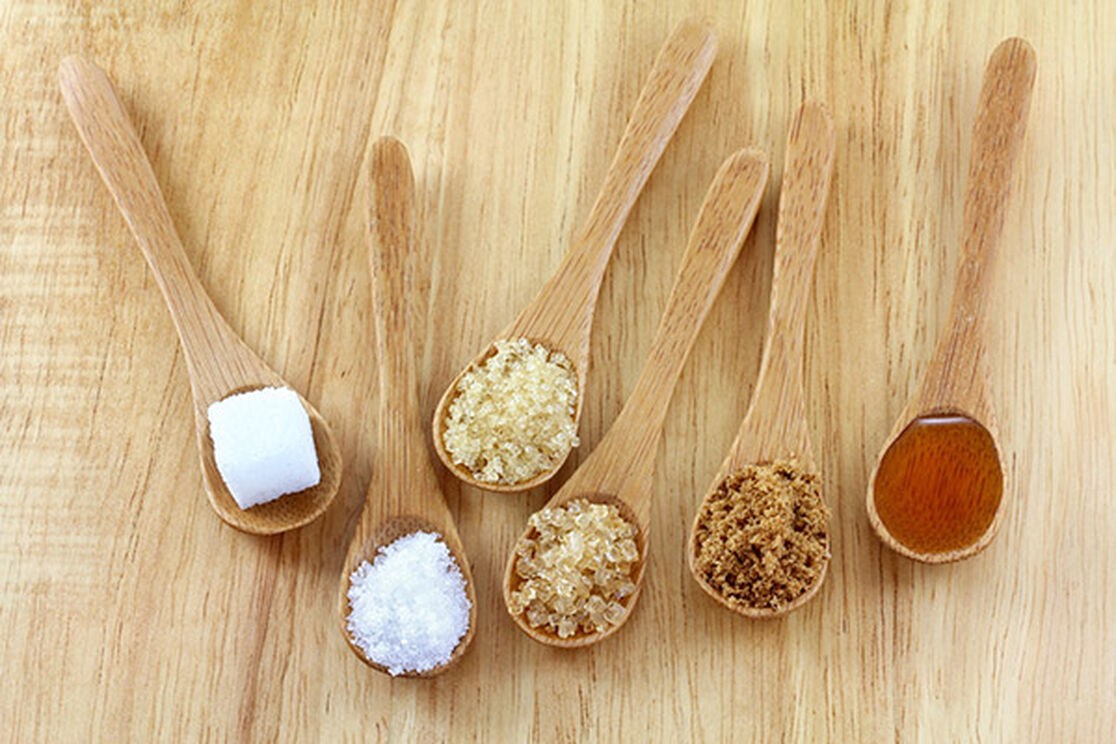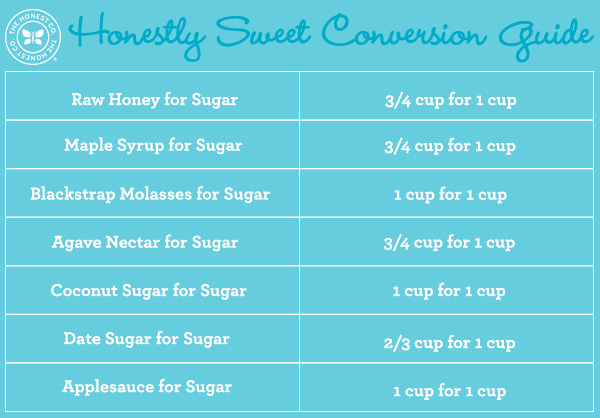Let’s face it: Between the office, the parties, the school events, and your family traditions at home, your consumption of sweets can skyrocket during the holidays! Unfortunately, added sugars — not the naturally occurring sugars in our fruits and vegetables, but the sugars we add to our food to make them more appetizing — are a leading cause of unwanted calorie consumption, with no added nutritional benefits. According to the U.S. Department of Agriculture, Americans consume one hundred and fifty six pounds of added sugar each year on a per capita basis. This can result in poor nutrition, unwanted weight gain, tooth decay, and a whole slew of other negative side effects.
As you may have guessed from the name of this feature, we’re happy to report that there are some alternatives that will still satiate your sweet tooth. For this Alternative Eats, we’ve broken down the benefits (and some of the challenges) to using alternative natural sweeteners. Because measurements can vary depending on the sweetness of sugar alternatives, we’ve also included a handy conversion guide you can use for sweetener substitutions when cooking and baking this Holiday season. Just print this out, laminate or place in a clear case to avoid kitchen mess, and keep it as a reference! What could be sweeter than being a well-informed eater?
7 Natural Alternatives to Refined Sugar
- Raw Honey: A long-time favorite, honey is a readily available sweetener. It has a lower glycemic index than other sugars, and is rich in antioxidants. Make sure to select a locally sourced, raw honey which will contains the most added nutrients.
- Maple Syrup: Tapping maple trees for their sweet sap, maple syrup is made from the sugary syrup left behind once the water has been evaporated off. Maple syrup has been used as an alternative for refined sugar for centuries. It contains some minerals and antioxidants, but it is still high in sugar content and should be consumed in moderation. Be careful not to be fooled by the imitation “maple-flavored syrup” typically found in grocery aisles — these are basically just high-fructose corn syrup, sugar, and no more than 3% real maple syrup.
- Blackstrap Molasses: The syrupy by-product of the process that turns sugar cane into table sugar, this molasses is rich in iron, vitamin B6, magnesium, calcium, and has more antioxidants than any other natural sweetener.
- Agave Nectar: Made from the agave plant (the same one that brings us tequila!), this sweetener has slightly more calories than traditional sugar, but it’s also about 1.5 times sweeter so you can get by with using less of it. While it is a good vegan alternative to honey, it does not have the same health benefits as other natural sweeteners and should still be used in moderation.
- Coconut Sugar: This sweetener comes from the flowers of the coconut tree, and — despite the name — tastes nothing like coconut. It’s still a very versatile sweetener, perfect for cooking, and it contains many vitamins and amino acids, like potassium, magnesium, iron and zinc.
- Date Sugar: Made of ground up dates, date sugar is one of the healthiest alternatives, as it is a whole, unprocessed food. It can also be combined with honey or coconut sugar to make it even easier to use in baking.
- Unsweetened Applesauce: Applesauce is a unique sweetener choice because, like date sugar, it takes advantage of natural fruit sugar already present in the apples. It also drastically reduces the calories present in the final product: 1 cup of sugar has over 700 calories, while 1 cup of applesauce only has about 100 calories. When using as a substitute in cooking, make sure to reduce the liquid in the recipe by ¼ cup for every cup used.
Honestly Sweet Conversion Guide
In any case, sugar is still sugar, and we should always be mindful of our consumption. To cut back on overall sugar intake, try reducing the amount that your recipes call for and instead use ⅔ to ¾ of a cup for each cup required. You may also try using spices and herbs like cinnamon, nutmeg, and ginger to enhance the flavor of your food without the added guilt.
How do you skip the sugar this season? Let us know in the comments!
We aim to provide you with the most honest and credible information possible. This article was reviewed for accuracy by The Honest Team and was written based on sources that are linked at the bottom of the article.
blog_review_statement




